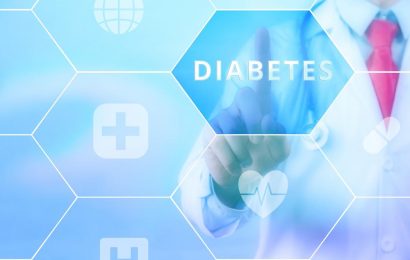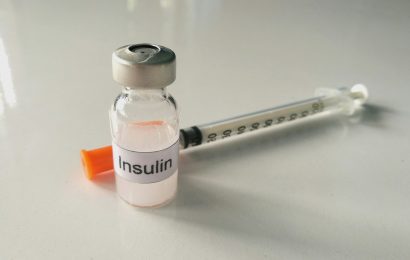Diabetes fatigue is one of the most common disabling symptoms of the disease. It can disrupt and interfere with all aspects of daily living.
What causes diabetes fatigue, and why is it so common?
Living with diabetes fatigue
We’ve written about fatigue before and received tons of great comments on those posts. But this time let’s go deeper and find the whole range of causes and solutions, even if it takes a few weeks. Hopefully, everyone will find something that might help them, because this is a serious problem.
For example, Melanie wrote, “[Fatigue] really takes a toll on my family and things we can do. I just want to have the energy to play with my son and to do things around the house or with friends…I can’t drive more than 30 minutes because my husband is afraid I will fall asleep…and wreck [the car]. (I have dozed while driving before.)”
Maria commented, “Fatigue is a constant and I have had to learn to do only what I can. I don’t push myself anymore as I pay for it dearly. I get tired of explaining why I don’t feel good, don’t want to do anything. Some understand and some don’t.” And Jan wrote, “I sleep from midnight to noon each day. Then I get depressed because I wasted half a day.”
Because of my multiple sclerosis (MS), I live with fatigue sometimes, and I know how limiting it is. I know how difficult it can be to manage. There are more than 15 known causes for fatigue. It helps to figure out what is causing yours, so you can address it. Here are some possibilities.
Causes of diabetes fatigue
First, diabetes can directly cause fatigue with high or low blood sugar levels.
Causes related to blood sugar
• High blood glucose makes your blood “sludgy,” slowing circulation so cells can’t get the oxygen and nutrients they need. Margaret commented, “I can tell if my sugars are high in the morning, because ‘groggy’ doesn’t begin to describe it. ‘Drugged’ is how it feels.”
• Low sugars levels also cause diabetes fatigue, because when blood sugar is low, there is not enough fuel for the cells to work well.
• In addition, high blood glucose can cause diabetes fatigue through inflammation. Blood vessels get inflamed by the sugar. When this happens, according to research, immune cells called monocytes come into the brain, causing fatigue.
Other medical conditions that can cause fatigue
But your diabetes fatigue may not be caused by diabetes at all. Other medical conditions that can cause fatigue include:
• Anemia, or low red blood cell counts. It’s easy to be tested for anemia. If you’ve got it, it’s usually due to deficiency of iron, folic acid, or vitamin B-12, or to heavy menstrual bleeding in women (which results in iron deficiency).
• Low thyroid (“hypothyroidism”) — people with diabetes are more likely than others to have thyroid problems. If your thyroid level is low, you are likely to feel tired, sleepy, and depressed.
• Low testosterone levels, especially in men. Men with diabetes are much more likely to have low testosterone.
• Infections: People with diabetes often have infections they don’t know about. Infections take energy to fight, which can cause fatigue and raise blood sugar levels. A common source is urinary tract or “bladder” infections. They often hurt, but sometimes have no symptoms, except for the fatigue. Silent dental infections and vaginal infections are also common and fatiguing.
• Undiagnosed heart disease: If you get tired after tasks that you used to sail through, it could be time to for a heart check-up.
• Conditions like chronic fatigue and fibromyalgia. These are much more common in women, but men get them too. Fatigue is the main symptom. Many other diseases cause fatigue — you can see the government’s list here.
• Medication side effects: Many drugs for diabetes, blood pressure, depression, pain, and other issues can cause fatigue. Read labels, ask your doctor or pharmacist.
Additional causes of fatigue
Then there are causes that aren’t entirely medical:
• Lack of sleep or poor sleep — Some people are too wound up or too busy to sleep. Or they’re up to use the bathroom all night, or they have obstructive sleep apnea (OSA), which can wake them up many times an hour. If that is happening to you, you are likely to be fatigued during the day.
• Shift work — rotating shifts or working nights — can cause fatigue directly by messing with your body clock or indirectly by disrupting sleep.
• Depression is very common with diabetes. Most depressed people feel fatigued, even if they don’t feel sad. Even at low levels, depression can sap your motivation. Why get up? You can take a free test to see if you are depressed here.
• Doing too much: If you’re ripping and running all day, not taking breaks or even stopping to breathe much, you are courting fatigue. Patti wrote, “I think that forcing myself to do everything is just causing the fatigue to worsen.” She’s probably right.
• Stress: In small doses, psychological or physical stress can give you energy, but if it goes on too long, it will wear you out.
• Diet: Too much carbohydrate — especially refined carbs — can make anyone tired, especially with diabetes. Kat wrote, “now that I am eating a higher protein/fat, lower-carbohydrate diet, I have shaken off that really sleepy/extreme fatigue that I used to have every day.”
• According to WebMD, too much caffeine can cause diabetes fatigue through a rebound effect. They also say that dehydration, or not drinking enough liquid, is a major cause of fatigue.
• Being out of shape or having weak muscles: Not moving our bodies contributes to fatigue. Of course, it’s hard to exercise when you’re fatigued.
• Aging: It is normal to have less energy as we age, but this slowing down should not be dramatic. If loss of energy is rapid or severe, there is something else going on.
This list is getting ridiculously long, and it’s not complete. If you’re dealing with fatigue, perhaps start by evaluating yourself for these possibilities. Then read my piece “Stress and Fatigue” for solutions professionals and our readers have found.
Want to learn how to reduce diabetes fatigue? Read “Recovering From Diabetes Fatigue” and “Diabetes Fatigue — Get Your Energy Back,” by nurse David Spero.





